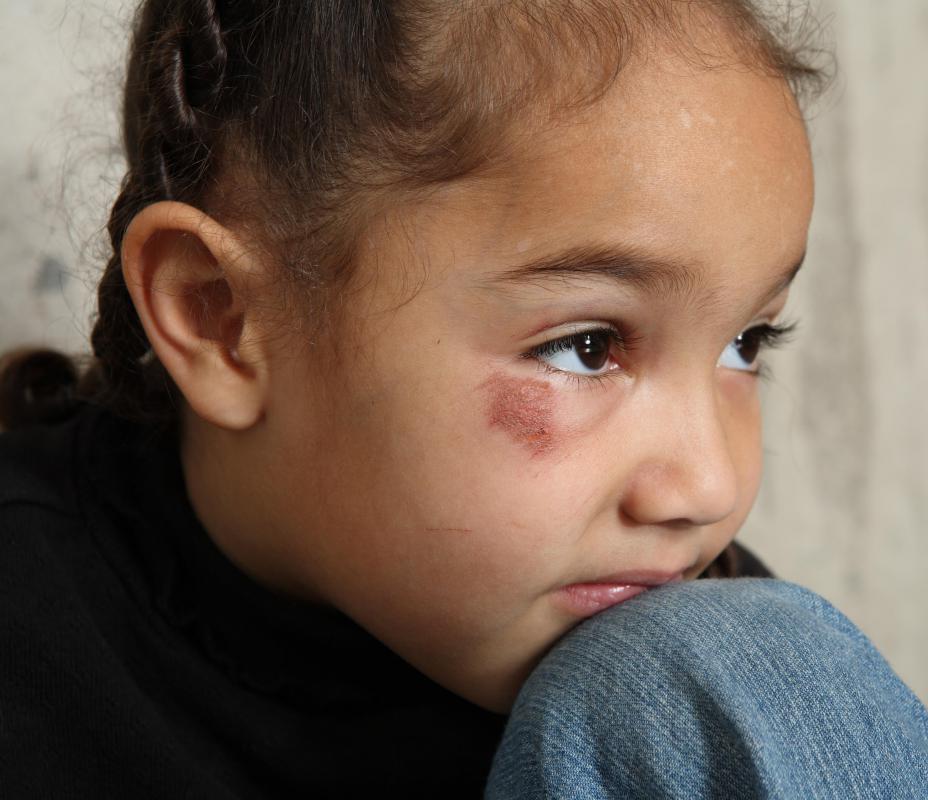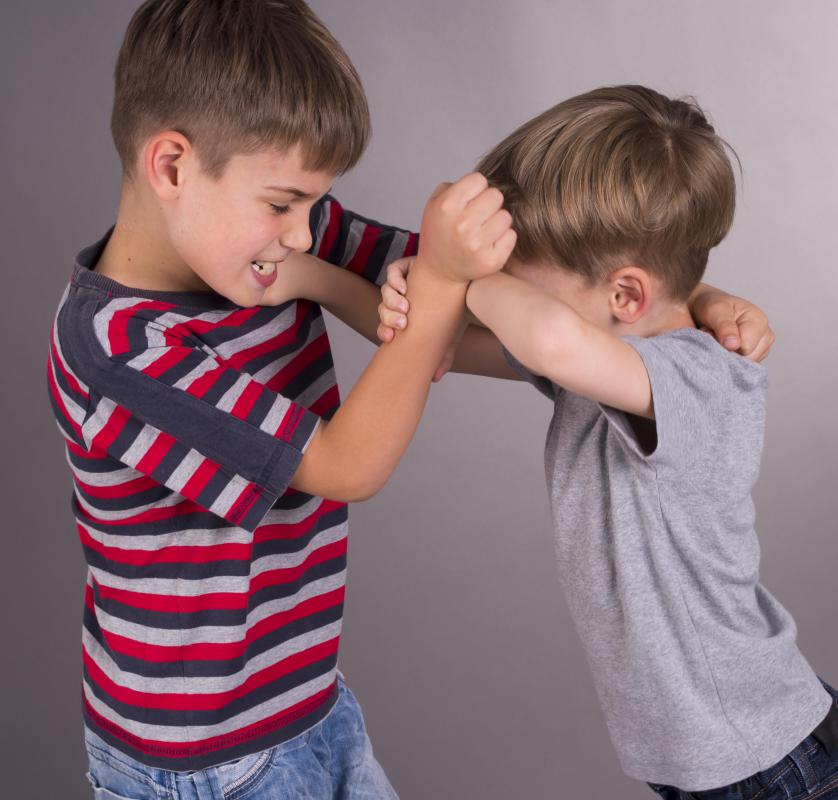At TheHealthBoard, we're committed to delivering accurate, trustworthy information. Our expert-authored content is rigorously fact-checked and sourced from credible authorities. Discover how we uphold the highest standards in providing you with reliable knowledge.
What Are the Common Characteristics of Child Abuse Survivors?
Child abuse survivors may demonstrate certain characteristics in adulthood that can impede their ability to function in everyday life and to maintain good, healthy relationships with others. It should be noted, however, that each child abuse survivor is an individual, and may manifest some characteristics but not others. The differences among survivors are due to a number of things, including genetics, social environment and whether or not the survivor was able to receive therapy and support in dealing with his condition. Another aspect that can have a significant impact on the characteristics of survivors is the type and severity of abuse they experienced while growing up.
Victims of various types of abuse may demonstrate symptoms of post-traumatic stress disorder (PTSD) and may suffer from both anxiety and depression. Child abuse survivors may resort to a variety of coping mechanisms to help them manage their feelings and achieve some type of normal functioning. For example, a survivor may abuse drugs or alcohol as a way of “numbing” himself against unpleasant memories and psychic pain. He may also have difficulty maintaining close and trusting relationships with other people. In addition, mental health problems combined with impairments in socialization may make it difficult for some child abuse survivors to hold gainful employment.

Different types of child abuse can produce different long-lasting symptoms in survivors. In some cases, child abuse survivors still bear physical symptoms of both physical and sexual child abuse. For many survivors, this damage can contribute to emotional anguish and make it difficult for the victim to achieve closure.
Sexual child abuse survivors may have difficulty establishing appropriate boundaries with others in sexual and romantic relationships. The survivor may either act out in a promiscuous manner or be overly compliant with a sexual partner regardless of the victim's own needs and desires. Alternatively, the victim may develop an abhorrence of physical contact and sexual behavior.

Victims of mental child abuse may develop defense mechanisms that can significantly impede their ability to interact with others. These defense mechanisms may include becoming overly submissive or, alternatively, aggressive in their relationships. These victims may also find themselves keeping others at a distance through a lack of trust. Alternatively, these victims may also find themselves acting in a way that makes them easy targets for exploiters and abusers. As these victims may have difficulty feeling comfortable with relationships that are not abusive, they may either seek out or endure abusive relationships in adulthood.
AS FEATURED ON:
AS FEATURED ON:


















Discuss this Article
Post your comments